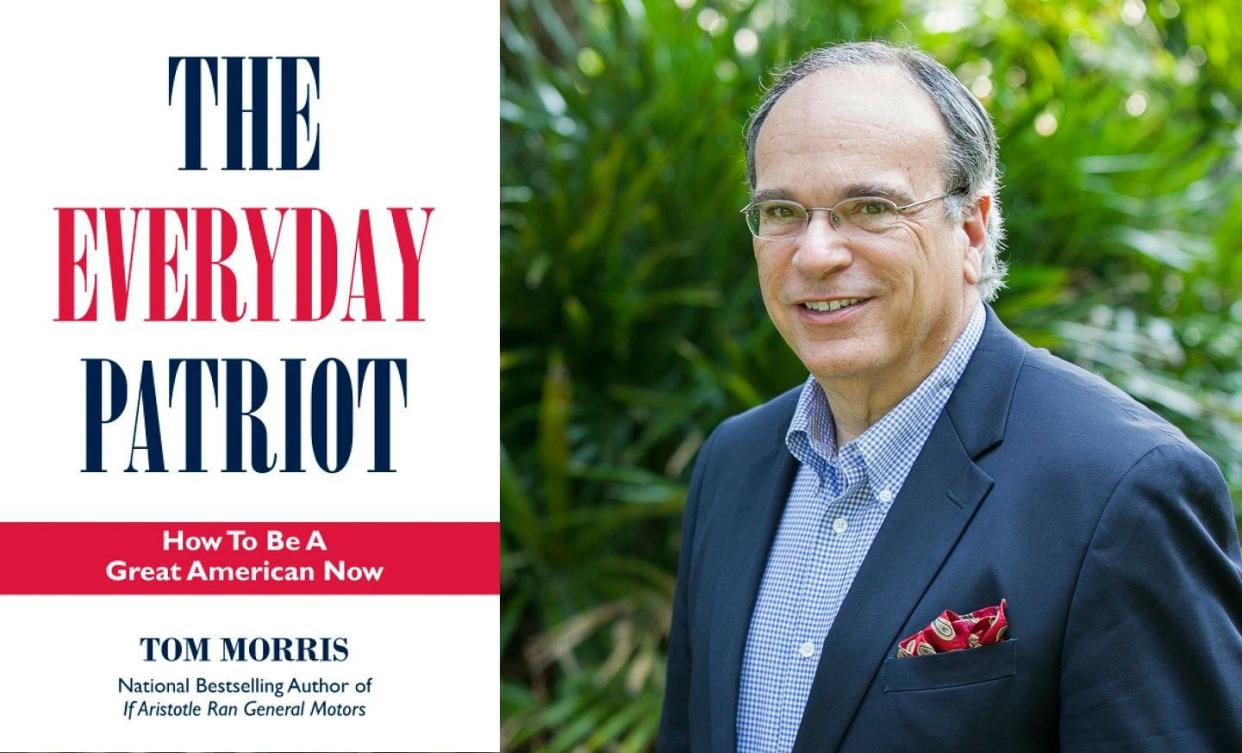Is patriotism dead? In new book, Wilmington philosopher Tom Morris explores the question

"Public philosopher" and author Tom Morris has written a shelf of best sellers, from "If Aristotle Ran General Motors" and "If Harry Potter Ran General Electric" to, inevitably, "Philosophy for Dummies."
Through his Wilmington-based Morris Institute for Human Values he has spoken to business and civic groups around the country, and now he's expanded into Zoom.
Just in time for an election year, Morris takes up the topics of patriotism and citizenship. As in his previous books, he treats them through the lens of great thinkers of the past, from Plato and Socrates to Confucius, Ralph Waldo Emerson and Robert M. Hutchins.
It's not a pretty sight.
"We have elected or allowed people to stay in power who have blocked and constrained the improvement of our national life in almost every way possible," Morris writes in "The Everyday Patriot," now out in paperback. "Racism has disguised itself in a hundred ways and worked under false flags to undermine what should be. Narrow financial interests have dangerously distorted public policy. Anger has corroded our national discourse."
It's not a great age for patriotism, Morris concedes. Mass mobility has undermined our allegiance to local communities. Too many people — Morris himself pleads guilty — have focused on careers to the detriment of their role in politics and society.
But it doesn't have to be that way. Morris makes a close reading of the Declaration of Independence to see what the nation's founders thought and how it can answer today's questions.
More: New Hanover County Library spotlights Wilmington author Jason Mott's 'Hell of a Book'
More: In new novel 'Carolina Beach,' former StarNews editor imagines crime wave in beach town
Patriotism today focuses on rights and liberties, often stretched to an extreme. Citing his great philosophers, Morris argues that patriotism also involves important duties — particularly to vote and to educate oneself about public affairs (preferably from a reliable, well-sourced outlet).
"The pursuit of happiness," as Thomas Jefferson and other founders saw it, did not mean entertainment or euphoria. Rather, it meant the pursuit of a place in the world where one fits best, with fulfilling work and social relationships.
To that point, Morris draws from Confucius and others that healthy politics goes beyond government and elections and involves healthy relationships with one's family and one's community.
Being a good citizen means more than tax paying and jury duty. Rather, Morris suggests, it means shoring up one's locality in any of many ways: mentoring a student or coaching a local youth team, backing the volunteer fire department, shoveling snow (or mowing a lawn) for an elderly neighbor, thanking police officers for their service and simply smiling at those around you.
Also, Morris suggests, it wouldn't hurt to read a book once in a while.
Cynics will dismiss Morris's thesis as Pollyanna-ism It's hard for one person to make a difference. Still, Morris argues, if enough people work together with persistence and passion, the results can be spectacular.
BOOK REVIEW
'THE EVERYDAY PATRIOT:
How to be a Great American Now"
By Tom Morris
Wisdom/Work, $15.99
This article originally appeared on Wilmington StarNews: In new book, philosopher Tom Morris explores 'The Everyday Patriot'

